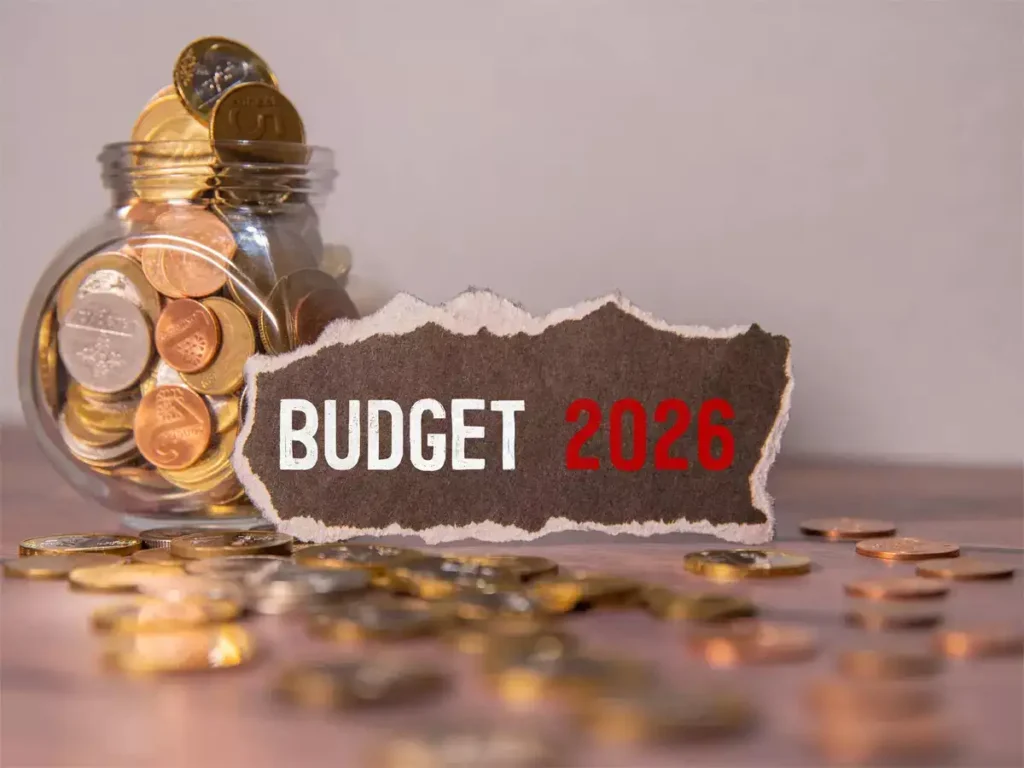Union Budget 2026-27: The Finance Ministry of India is gearing up for the Union Budget 2026-27, with a clear emphasis on boosting domestic growth amid global economic headwinds. Sources indicate that pre-Budget discussions with external stakeholders, including economists, agricultural experts, industry representatives, labour unions, and social sector specialists, will commence from mid-November 2025. This proactive approach reflects the government’s priority of strengthening India’s domestic economy while navigating uncertainties in the international trade environment.
With the Reserve Bank of India projecting 6.8% growth for FY26, officials remain cautiously optimistic. However, concerns persist regarding the potential impact of US tariff hikes and other international trade disruptions on FY27. The Finance Ministry is closely monitoring these developments, with expectations that ongoing bilateral trade agreements may mitigate some of these risks.
The upcoming budget cycle will also include consultations with state finance ministers, emphasizing cooperative fiscal planning. The government’s focus areas include building domestic manufacturing capabilities, promoting sunrise sectors like Global Capability Centres (GCCs), and improving the ease of doing business through procedural simplifications. While last year saw major announcements in income tax and GST, the FY27 Budget may primarily concentrate on procedural corrections and streamlining existing measures rather than introducing large-scale reforms.
Pre-Budget Preparations and Timeline
Pre-Budget Meetings
- Pre-Budget Meetings with Administrative Ministries and Departments: Started October 9, 2025, chaired by the Expenditure Secretary, expected to continue until early November.
- External Stakeholder Consultations: Mid-November 2025, including economists, trade experts, agricultural specialists, labour unions, and social sector professionals.
- State Finance Ministers Consultation: Scheduled after external stakeholder meetings to align Centre-state fiscal priorities.
Read about: Bajaj Finance Among 4 Stocks Hitting 5-Year Swing Highs: Key Insights for Investors
Budget Circular and Projections
The Finance Ministry had issued the Budget Circular in August 2025, requesting administrative ministries to submit projections for:
- Revised Estimates (RE) for FY25-26
- Budget Estimates (BE) for FY26-27
These inputs will form the foundation for policy announcements and allocations in the upcoming Union Budget.
Priority Areas for Union Budget 2026-27
1. Boosting Domestic Growth
Domestic growth remains the primary focus of Budget FY27. Despite recent GST rate cuts, domestic demand has been uneven. The government aims to strengthen local consumption, promote manufacturing, and reduce reliance on imports, particularly in strategic sectors.
2. Building Domestic Capabilities
The Budget will prioritize manufacturing and technology development, including sunrise sectors such as Global Capability Centres. This initiative aligns with India’s broader goals of self-reliance and positioning the country as a global hub for high-value services.
3. Ease of Doing Business
The government plans to introduce measures for procedural simplification, aiming to reduce compliance burdens for businesses. While major income tax or GST reforms are unlikely, the focus will be on streamlining existing rules to improve efficiency.
4. Fiscal Federalism: Sixteenth Finance Commission
The FY27 Budget will also incorporate recommendations from the Sixteenth Finance Commission, which will guide tax devolution between the Centre and the states. The report is expected by November 2025, providing a framework for equitable resource distribution.

Market and Policy Context
- Global Headwinds: Rising US tariffs and uncertainty in international trade pose risks to domestic growth projections.
- Domestic Demand: Although GST cuts have provided relief, demand recovery remains uneven.
- Financial Sector Focus: Enhancing GCCs, promoting sunrise sectors, and encouraging private investment remain strategic priorities.
- Procedural Reforms: Streamlining tax administration and easing compliance are likely to feature prominently.
Expected Timeline
| Event | Timeline |
|---|---|
| Pre-Budget Administrative Meetings | October 9 – Early November 2025 |
| External Stakeholder Consultations | Mid-November 2025 |
| Sixteenth Finance Commission Report Submission | End November 2025 |
| Union Budget 2026-27 Presentation | Early February 2026 |
Conclusion
The Union Budget 2026-27 is being crafted with domestic growth, self-reliance, and procedural simplification as its central themes. With global uncertainties and uneven domestic demand, the Finance Ministry is taking a measured approach, engaging with experts, state finance ministers, and stakeholders to ensure a comprehensive fiscal strategy.
While large-scale tax reforms may be limited, the Budget is expected to strengthen manufacturing, promote sunrise sectors, and improve ease of doing business, setting the stage for sustainable growth. The integration of the Sixteenth Finance Commission’s recommendations will ensure fiscal federalism and equitable distribution of resources.
Investors, businesses, and policymakers will closely monitor the pre-Budget discussions, as they provide early signals of key priorities and allocations in FY27. The government’s measured approach underscores its commitment to balanced growth amid external challenges.
Also read: Can Diabetics Eat Idlis and Dosas Guilt-Free? Expert Tips to Enjoy Them Safely
FAQs of Union Budget 2026-27
1. When will the Union Budget 2026-27 be presented?
The Union Budget 2026-27 is expected to be presented in early February 2026. Pre-Budget consultations will guide policy decisions and allocations.
2. What are the key focus areas of the FY27 Budget?
The Budget will focus on boosting domestic growth, enhancing manufacturing capabilities, promoting sunrise sectors like Global Capability Centres, improving ease of doing business, and ensuring fiscal federalism.
3. Who will participate in pre-Budget discussions?
Pre-Budget consultations will involve economists, trade and industry experts, agricultural specialists, labour unions, social sector professionals, and state finance ministers.
4. How does the Sixteenth Finance Commission influence the Budget?
The Commission provides recommendations on tax devolution between the Centre and states, ensuring equitable distribution of resources and aligning fiscal priorities for FY27.
5. Will there be major tax reforms in FY27 Budget?
Large-scale income tax or GST reforms are unlikely. The focus is expected to be on procedural simplification, streamlining compliance, and minor corrective measures rather than introducing major changes.

tzx76x